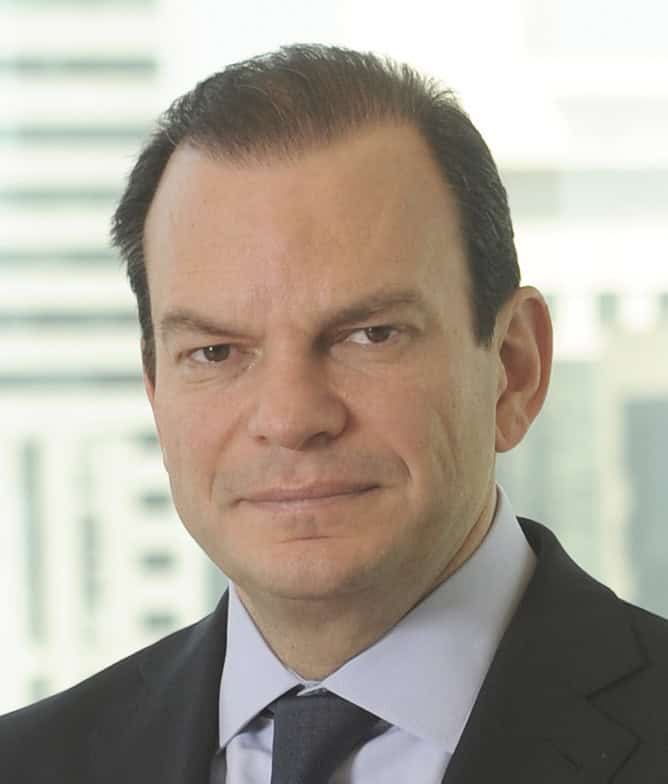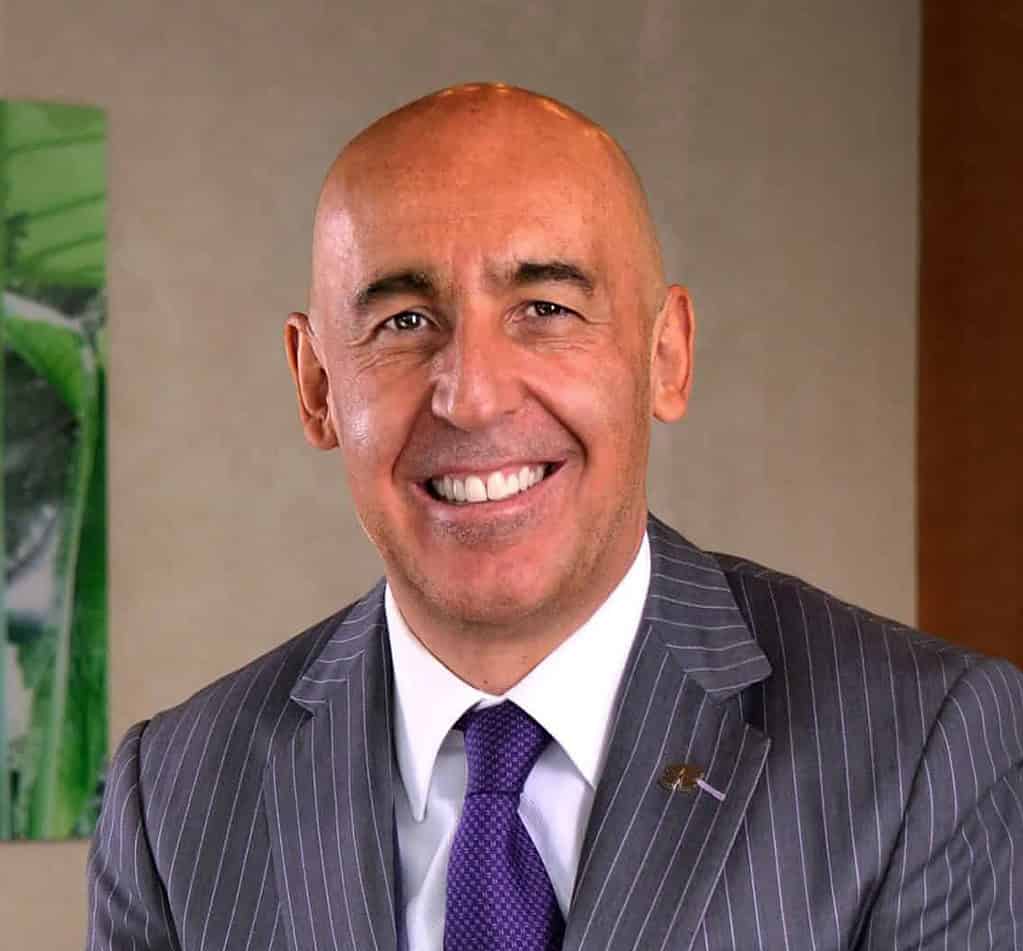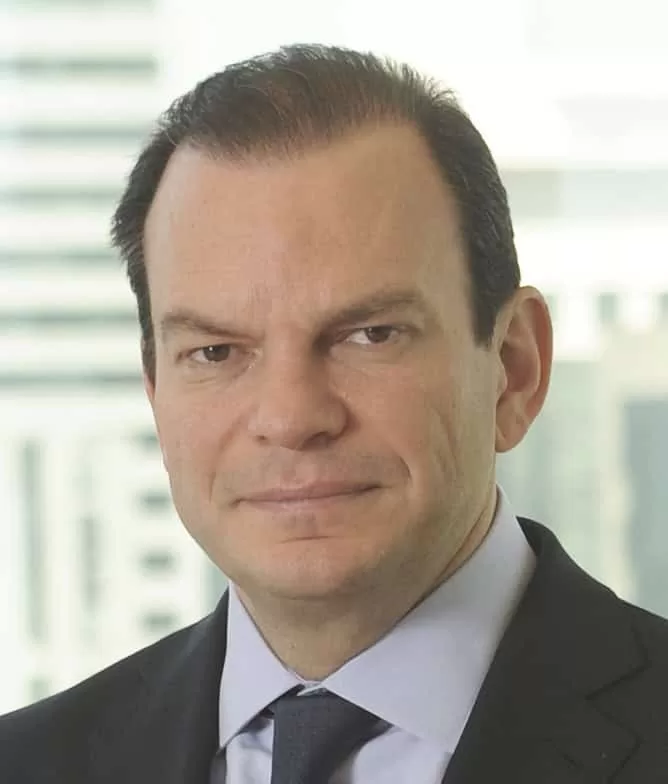Banks show solid performance but regional economies didn’t fare as well.
It was an overall solid year for Latin American economies. Tailwinds that helped to push economic activity in the region to better-than-expected levels included the lowering of interest rates in some of the region’s largest economies—such as Brazil, Mexico, and Chile—and increased trade on the back of the near-shoring boom stemming from the US.
However, lower commodity prices during the year; lingering inflation in Argentina, Colombia and other key geographies; continued political uncertainty; and a strong base effect from 2023 somewhat balanced things out to the downside on the GDP front.
According to the International Monetary Fund (IMF), the region (including the Caribbean) grew an estimated 2.5% last year, underperforming the 2023 global economy’s 3.1%.
Despite the volatile backdrop, the region’s banking sector stood firm, displaying above-average growth. This was mainly due to the improvement of nonperforming loans in the year’s second half, consequent on lower interest rates and solid activity across the investment banking spectrum.
Mexican banks notched another year of record profits, garnishing nearly $13.33 billion, representing an actual annual increase of 10%, according to data from the Banco de Mexico.
In the region’s largest market, Brazil, the country’s five largest banks saw solid 1.9% year-over-year (YoY) profitability growth, amounting to a staggering approximately $19.35 billion in profits. However, a drop in proceeds for historical powerhouses such as Bradesco and Santander led to a mixed overall outlook. Elsewhere in the region, results were mixed, with above-average profitability in Argentina helping balance the sharp drops in Chile and Colombia.
| Best Banks in Latin America | |
|---|---|
| Argentina | Banco de Galicia |
| Bolivia | Banco Mercantil Santa Cruz |
| Brazil | BTG Pactual |
| Chile | Banco de Chile |
| Colombia | Banco de Bogotá |
| Ecuador | Produbanco |
| Mexico | Banorte |
| Paraguay | Banco Itaú Paraguay |
| Peru | Banco de Credito del Peru |
| Uruguay | Banco Itaú Uruguay |
| Venezuela | Mercantil, C.A., Banco Universal |

Regional Leader
Despite the challenges of a volatile year, BTG Pactual, our winning bank for the region and in its home country of Brazil, performed exceptionally well. The giant achieved robust 25% YoY profitability growth, putting it above the average. The bank reported best-in-breed growth in key business lines during the year, with new customer acquisition in corporate and retail business, new product lines and record-breaking investment banking proceeds helping pave the way.
Amid those advances, BTG’s Corporate & SME Lending division jumped, totaling approximately $1 billion in the fourth quarter, an 88% increase YoY. The credit portfolio reached roughly $34 billion, with $4 billion in lending to small and midsize enterprises (SMEs).
In the investment banking spectrum—the bank’s historical cornerstone—BTG ranked first in the number of M&A deals in Brazil and in Latin America. It was also the top bank in the region for the year in terms of generated equity capital markets volume.
The bank achieved a return on average equity (ROAE) of 22.7%, with adjusted net income reaching approximately $2.8 billion, reflecting 61% growth compared to the previous period. As a result of the impressive year, the Brazilian giant’s assets under management reached approximately $288 billion, with a strong net inflow of $36.9 billion in 2023.
Large Economies
Amid the impressive year for banks in Mexico, Banorte surpassed its competition, posting growth in nearly all of its credit portfolios. As a result, its profit exceeded $9.5 billion in 2023, 15% more than in 2022. Meanwhile, its net interest income proceeds increased by 18% YoY to $6.4 billion, and nonfinancial income rose 19% to $895 million.
The strong loan demand from the near-shoring boom was added to Banorte’s performance. The bank’s mortgage loans grew 12% annually, reaching $14.6 billion; while automotive loans increased by 32%, with a balance of around $2.4 billion.

Moreover, the bank solidified its digital leadership by ending the year with 8.7 million digital customers. As a result, product sales through the bank’s digital channels surged from 7% of the total in 2020 to 44% in 2023.
In Argentina, amid the country’s inflationary nightmare and political instability, the role of commercial banks couldn’t have been more pivotal to the functioning of the economy.
By providing stability to its clients during this period, Banco Galicia notched impressive growth in all key aspects of its operation.
At year end, the bank reported a 25% increase in net profitability, up from the previous quarter’s 5% increase This resulted in an annualized return on average assets of 3.5% and an ROAE of 17%.
The above-average numbers were also driven by Grupo Financiero Galicia’s fintech and digital payments subsidiary, which posted a four-digit YoY growth in net profitability.
Due to the Chile’s muted economic growth and deteriorating labor market, Banco de Chile takes the award for displaying best-in-class resilience. While the country’s total average profits for the industry dropped 20.7% in the year, Banco de Chile secured a leadership position with best-in-breed financial planning while posting a net profit of $1.4 billion.
In Colombia, banks had an even harder time securing profitability amid a nearly 50% YoY drop in proceeds. The trend was mainly driven by economic deceleration and an increase in nonperforming loans. Against this backdrop, Banco de Bogotá, winner as Best Bank in Colombia, notched a solid $248 million in proceeds. At he same time, the bank’s assets and consolidated loan portfolio, which grew, respectively, 5.4% and 10.8% in the year.
Developing Economies
Banco Itaú Uruguay and Banco Itaú Paraguay take our awards as the best banks in those countries. Both are our winners for the second consecutive year, displaying their continued push to aggregate market share in Brazil’s neighboring economies.
In Paraguay, the bank’s total profitability represented 36.2% of the total market, an impressive leap from the 26.9% posted in 2021. Among the bank’s main initiatives last year was the introduction of PIK, a payment solution offering SMEs, and independent professionals and entrepreneurs, a simplified digital payment method.
In Uruguay, Itaú took advantage of the country’s solid growth in the banking industry to continue expanding its leadership, with a 15% increase in its client portfolio for the year.
In Bolivia, banks’ loan portfolio decreased by 2.5% compared to 2022, primarily due to the increasing delinquency rate, which jumped from 2.1% in 2022 to 2.8% in 2023. Despite that, Bolivian banks were able to post an increase in solvency, profitability and liquidity rates.
Against this backdrop, Banco Mercantil Santa Cruz retained its leadership in the country, growing its total assets to $6.1 billion, an increase of $2.2 million since 2022. This represents a dominating gross portfolio market share of 14.4% and 15.5% of deposits in the country.
According to the Superintendency of Banking, Insurance, and Private Pension Funds of Peru, the 17 banks operating in the country recorded an 8.8% drop in their profits at the end of 2023 compared with the previous year. Despite that, Banco de Credito del Peru, the winner as Best Bank in Peru, posted record-breaking profitability in the year under a solid 2.6% return on assets.
Venezuelan banks were able to notch impressive 8.9% profitability growth for the year. Amid the hot market, Mercantil Banco Universal upped its game in the savings account segment at the end of the second half of 2023, growing its market share in the country from 13% to 16.1%. Moreover, according to its latest financial report, the institution stood out in the same period by nearly doubling its loan portfolio, achieving eye-popping growth of 98.1%.
In Ecuador, increased political turmoil resulted in a challenging year for economic activity, with GDP falling short of estimates, albeit rising at a 1.3% yearly pace. Against this backdrop, the best bank in the country, Produbanco, managed to leverage its penetration in the commercial lending spectrum to boost its offerings. As a result, Produbanco’s total assets increased an above average 7.1% compared to the previous year.
